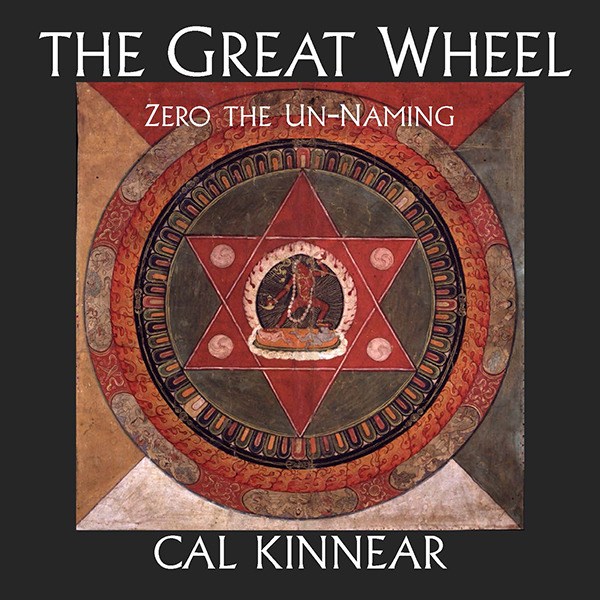While the task for any poet is to choose the exact word or phrase that gives meaning — by naming or through metaphor — to an experience, feeling, image or thought, the self-assigned mission of island poet Cal Kinnear has been a deeply reflective process of un-naming. The summation of his decade-long investigation into the meaning behind the words that make up our Western religious and philosophical underpinnings are collected in his latest book, “The Great Wheel: Zero the Un-Naming.” Kinnear will read from the new book at 6 p.m. Thursday at Vashon Bookshop.
Poet but also philosopher, Kinnear pays homage to language and how it shapes the world. Citing the approximately 7,000 living languages spoken today — including the 20 dominant ones — Kinnear said the un-naming is not about tossing out names and starting over, but rather it is about pointing us toward the inner world of words and what he calls the fluid, powerful world from which they rise.
“That’s what the un-naming is,” Kinnear said, “the undoing of what we’ve found ourselves fastened into, our Western way of thinking.”
After the 2004 publication of his previous book, “A Walk in Bardo,” which drew heavily on Eastern philosophy, the author turned his inquisitive eye toward an examination of the language that supports Western thought, Christianity and the Greek philosopher Plato. In his research, Kinnear found a virtual soul mate in the pre-Socratic Greek philosopher Herakleitos (Heraclitus). Heraclitus pre-dated Plato and lived in the Greek city of Ephesus, Ionia, on the coast of Asia Minor, from 535 to 475 BCE.
“He’s my main man,” Kinnear wrote in a recent email. “He has taught me to un-think the religio-philosophical strait jacket that has gripped Western thinking for thousands of years. To un-think is to un-name, to search for new ways to bring language to bear on our lives.”
Loathe to name his own work as one thing, Kinnear talks about the text of “The Great Wheel” as moving between prose and poetry, with no firm line. He begins each of the 20 chapters with a poem of his own and a quotation from Heraclitus, which he translated from the Greek, and then tackles many of the great questions philosophers have pondered over the centuries. From dreams and memories, to the mind and law, love and death, writing and language, transformation and what lies both beneath and beyond, the chapters encapsulate our world.
“The chapter sections talk about how life comes into us, arises in us, how memory works, the deeper memory, not the active recall memory. It goes through everything that makes up a person,” Kinnear said, adding in an email that the book “is about everything. It is especially about words and what they have to do with this world.”
In a more detailed explanation, Kinnear explained how the words reason and objective have dominated our Western thinking. Surrounded by the American Heritage Dictionary and his two-volume set of the Oxford English Dictionary, Kinnear spent a lot of time looking up words and contemplating the meaning. He un-names reason and objectivity by citing them as the lens through which Westerners see the world and measure its phenomena. With un-naming, the aperture opens for a broader and deeper understanding that comes with paying attention to the roots of language and applying the power of imagination. Kinnear hopes readers will discover an individual way into thinking rather than the universal way of thinking that the Western world calls reason.
Still, as a philosopher — or lover of wisdom — and someone with 75 years of experience living on the planet, Kinnear has no false expectations. He quotes Italian poet Patrizia Cavalli, who said, “My poems will not change the world,” adding the same applies here.
“I am not trying to change other people’s way of thinking, I’m just putting it out there, as all this is about is enchantment. We want to be enchanted, and what a poet can do is put enchantment out there and hope others will walk into it, catch the smell and the wonderful things happening there, and think, ‘Oh, I’d like to stay here.’”


